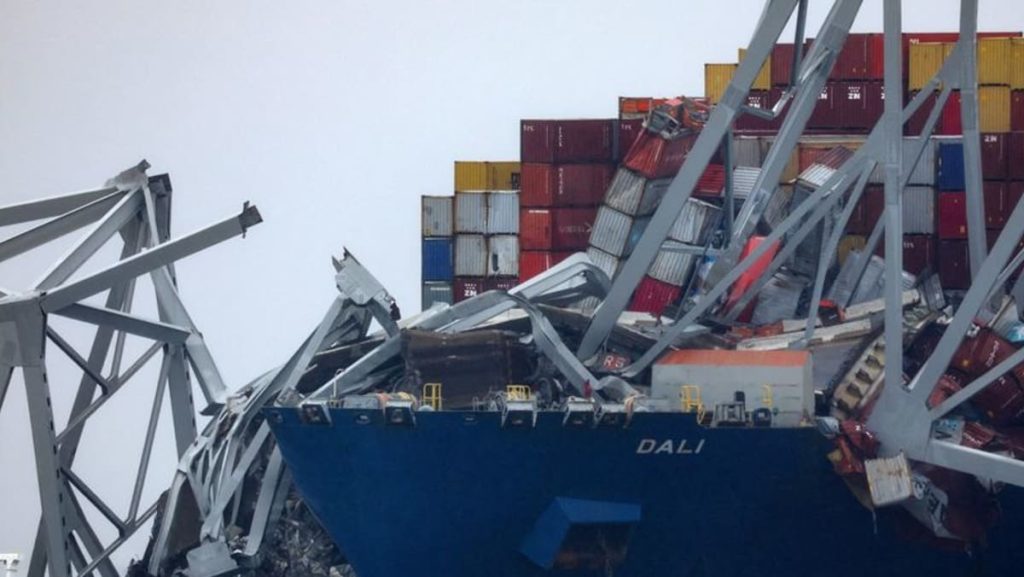The owner, operator, and charterer of the container ship that struck Baltimore’s Francis Scott Key Bridge on March 26th are facing potential lawsuits over the collapse of the bridge and the injuries or fatalities that occurred as a result. However, US maritime law may limit the liability of these companies. Legal experts explain that laws related to open-water navigation and shipping could restrict the types of lawsuits that can be filed against the registered owner of the Singapore-flagged ship, Grace Ocean Pte Ltd, its manager Synergy Marine Group, and its charterer Maersk. This limitation could also impact the damages that these companies may be required to pay.
Efforts to reach a spokesperson for Grace Ocean were unsuccessful, and representatives for Synergy and Maersk declined to comment on potential litigation. The closure of the port in Baltimore, the busiest port for car shipments in the US, and the economic damages suffered by businesses reliant on it, as well as the now-collapsed bridge, may not be recoverable through lawsuits. Experts, such as Martin Davies, director of the Maritime Law Center at Tulane University School of Law, explain that US courts have interpreted a 1927 US Supreme Court ruling to mean that only injuries, death, and property damage can be recovered from ship owners and operators, not purely economic damages.
Lawsuits related to the incident are likely to be limited to injuries, death, and property damage or losses caused by the collapse of the bridge. Claims from individuals harmed by the collapse or damages to the bridge itself, potentially brought by government entities, could be pursued. The legal experts suggest that these lawsuits will likely be filed in federal court, where plaintiffs may request a federal judge to “arrest” the ship, preventing it from leaving the jurisdiction during the litigation process. This could potentially impact the shipping operations of the companies involved in the incident.
The potential lawsuits are expected to focus on injuries, deaths, and property damage resulting from the collapse of the bridge. Claims related to economic damages endured by the city of Baltimore and businesses relying on the port may not be recoverable through legal action due to US maritime law limitations. Despite the tragic outcome of the incident, the legal framework surrounding maritime law and liability could influence the compensation that can be obtained by those affected. The legal experts emphasize that the limitations set by US laws will guide the course of litigation against the owner, operator, and charterer of the container ship involved in the bridge collapse.
As the legal proceedings unfold, the companies involved may face challenges in determining and accepting responsibility for the incident. The complexities of maritime law, particularly in cases involving open-water navigation and shipping, could influence the outcome of the lawsuits that are likely to be filed. The potential for limited liability and the restrictions on recovering economic damages may impact the overall compensation sought by those affected by the collapse of the Francis Scott Key Bridge in Baltimore. The legal experts suggest that the legal battles ahead will shape the repercussions faced by the owner, operator, and charterer of the container ship, underscoring the importance of understanding US maritime law in such cases.


